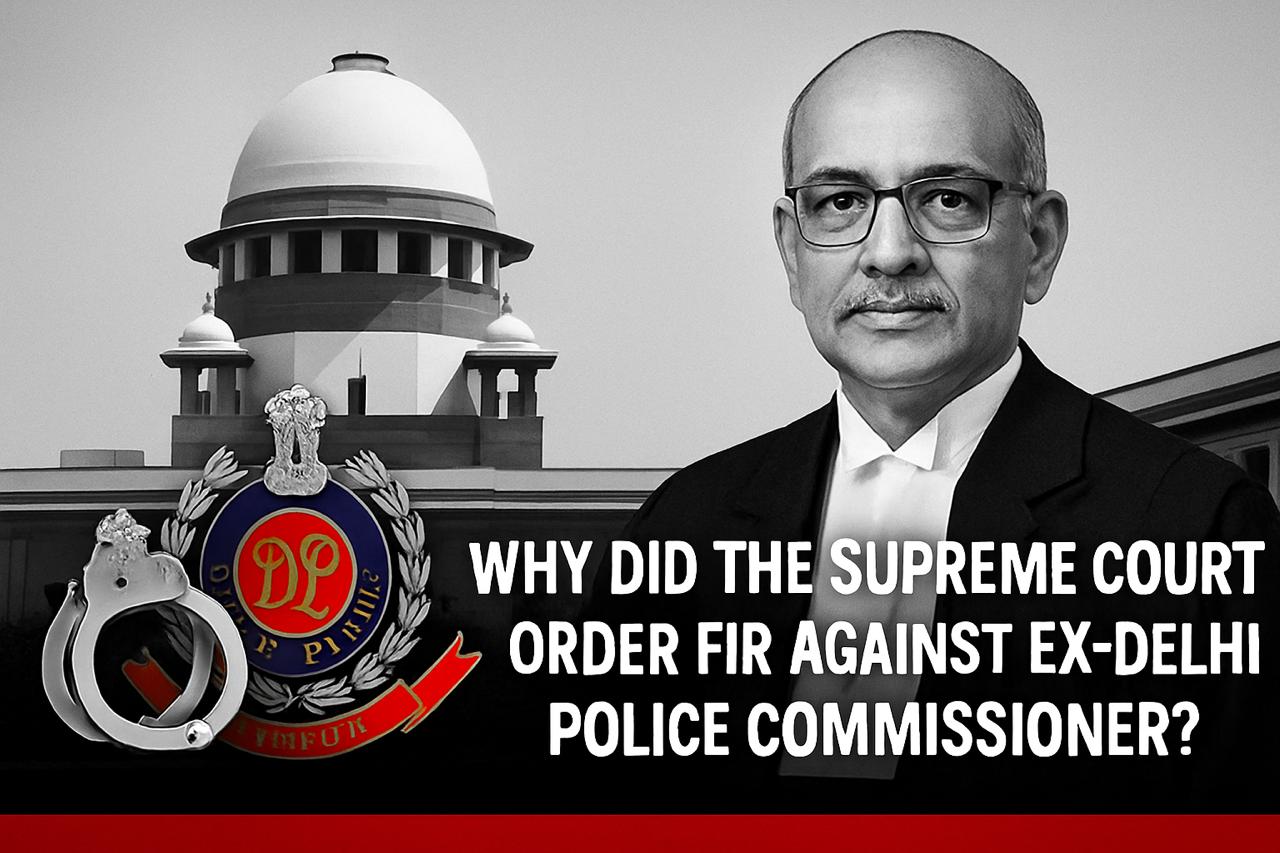Introduction: Supreme Court Orders FIR and the Fallibility of Power
There’s something almost poetic about the powerful being brought before the very system they once commanded. With its recent decision, the Supreme Court orders FIR against former Delhi Police Commissioner Neeraj Kumar and, in doing so, carves a bold message across the troubled face of Indian law enforcement: accountability knows no immunity. For the millions who’ve watched police and investigative agencies operate with seeming impunity, this order rooted in a case that lay dormant for two decades signals a sea change. When the Supreme Court orders FIR, the entire policing edifice sits up and takes notice.
Supreme Court Orders FIR and Says: Investigators Must Also Be Investigated
It was a bench comprised of Justices Pankaj Mithal and P.B. Varale that finally lifted this case from the cold files of the past. By upholding Delhi High Court’s directive to register an FIR against Neeraj Kumar alongside former CBI officer Vinod Kumar Pandey the Supreme Court did more than apply the law. It made a statement. Justice Mithal’s words echo: “It is high time that sometimes those who investigate must also be investigated to keep alive the faith of the public at large in the system.” Here lies the heart of the matter: the system’s guards cannot forever be exempt from the very scrutiny they impose on others.
The facts are almost cinematic allegations of criminal intimidation and document fabrication during a high-profile CBI assets probe, accusations left to wither and rot since the early 2000s. Over the years, the silence grew deafening, relief denied to complainants and accountability denied to the public.
Supreme Court Orders FIR: Decades of Allegations Finally Reach Court
The roots dig deep. In 2001, Sheesh Ram Saini first accused both Neeraj Kumar and Vinod Kumar Pandey of fabricating documents. By 2004, another complainant, Vijay Kumar Aggarwal, had joined the fray, alleging witness intimidation under Kumar’s watch while investigating his brother’s assets. Year after year, the papers collected dust. It took the persistent intervention of the Delhi High Court and now, the Supreme Court’s order to jolt the criminal justice system out of its torpor.
Fairness in the Process as Supreme Court Orders FIR
Process matters. The Court, careful not to indulge in spectacle, directed the Delhi Police Special Cell to investigate, but with checks firmly in place: an assistant commissioner or higher must supervise, the probe should reach a conclusion within three months, and no coercive action no arrest, no rash moves unless evidence demands it. In a nod to the presumption of innocence, the appellants retain their right to participate every step of the way, and the officer may freely file a closure report or chargesheet; nothing, the Court insists, will be decided by prejudice or the ghosts of old headlines.
Conclusion: Supreme Court Orders FIR A System That Polices Itself?
For all its symbolism, the Supreme Court’s action is not just about Neeraj Kumar or any individual. It’s about the unwritten contract between the police, the courts, and the people: justice must not only be done, but also be seen to be done. “Dichotomy of justice” that’s the unsettling phrase from the Bench, a reminder that when allegations against those in power go unaddressed, public faith wears thin, perhaps fatally so.
So as the Supreme Court orders FIR and launches this investigation into a former top cop, the principle emerges as clear as ever: Investigators aren’t demigods. If the rule of law is to mean anything at all, its reach must extend to the very top and, crucially, be seen to do so. In a country hungry for justice, perhaps that’s the true headline.
Author Information:
By Karthikeyan Ganesan, a law student from KKC College of Law, reporting on law and technology for Nyayasphere. Karthikeyan always likes to stay updated with current trends and important information regarding the law and cases across the country.

